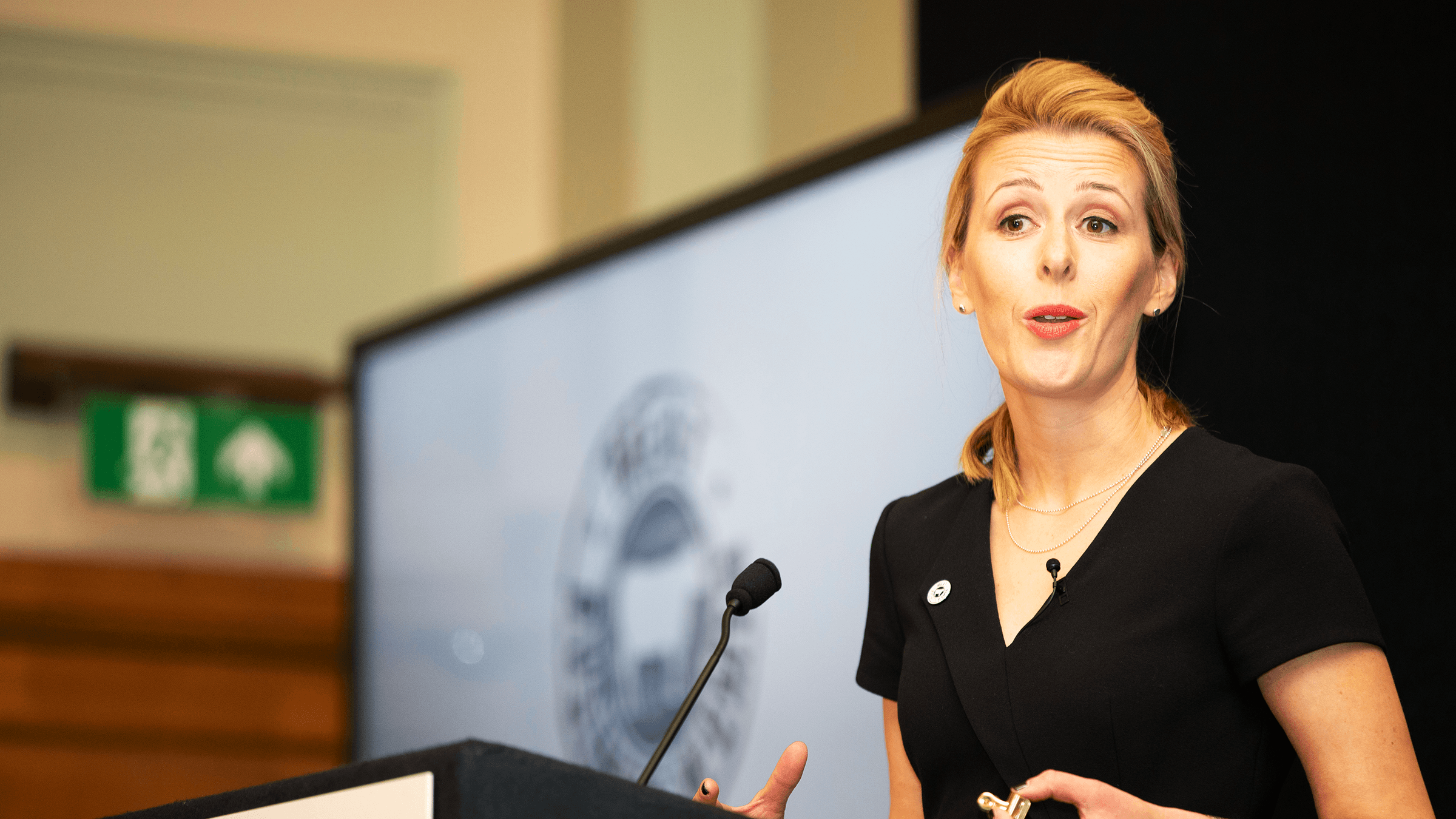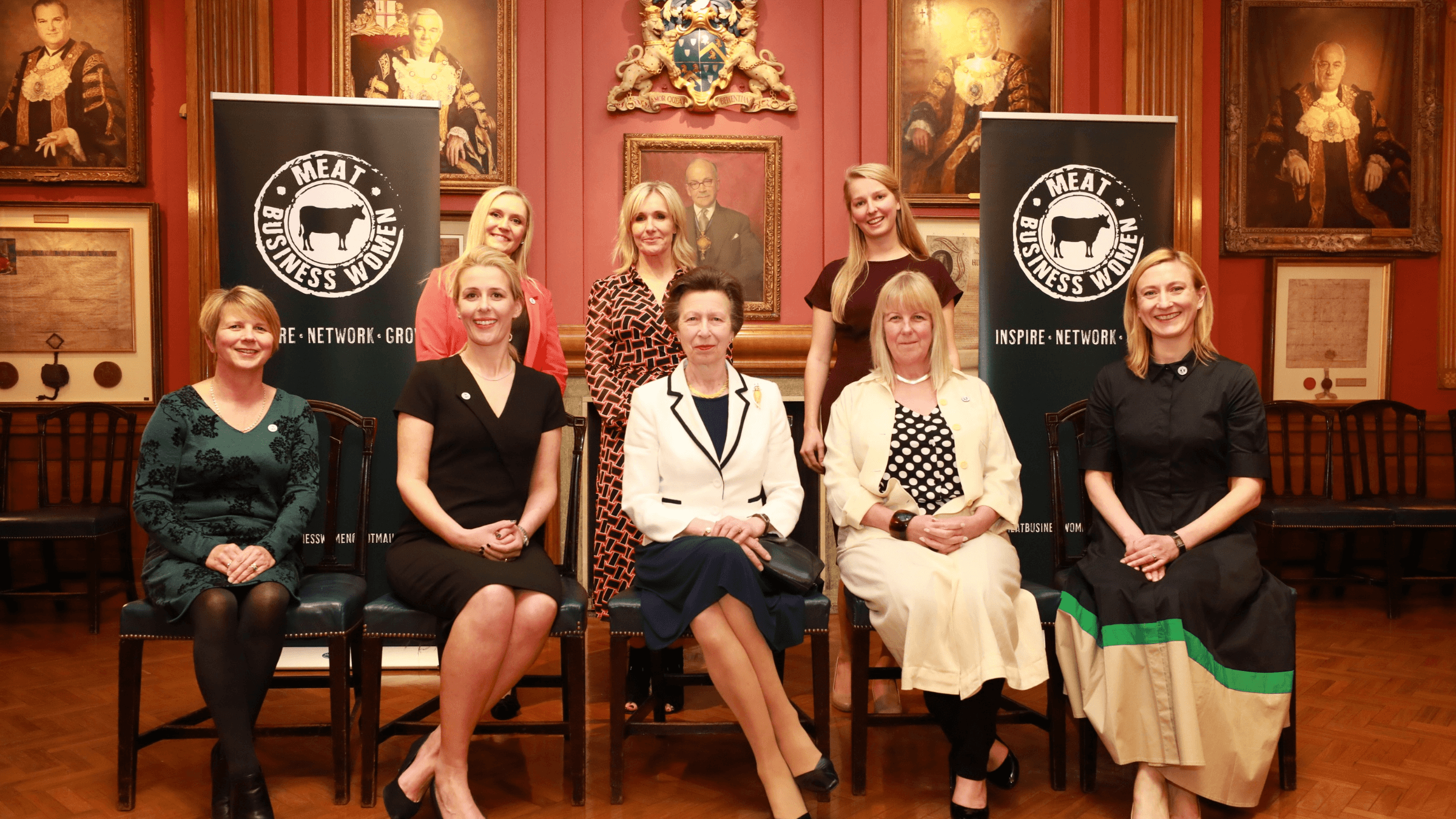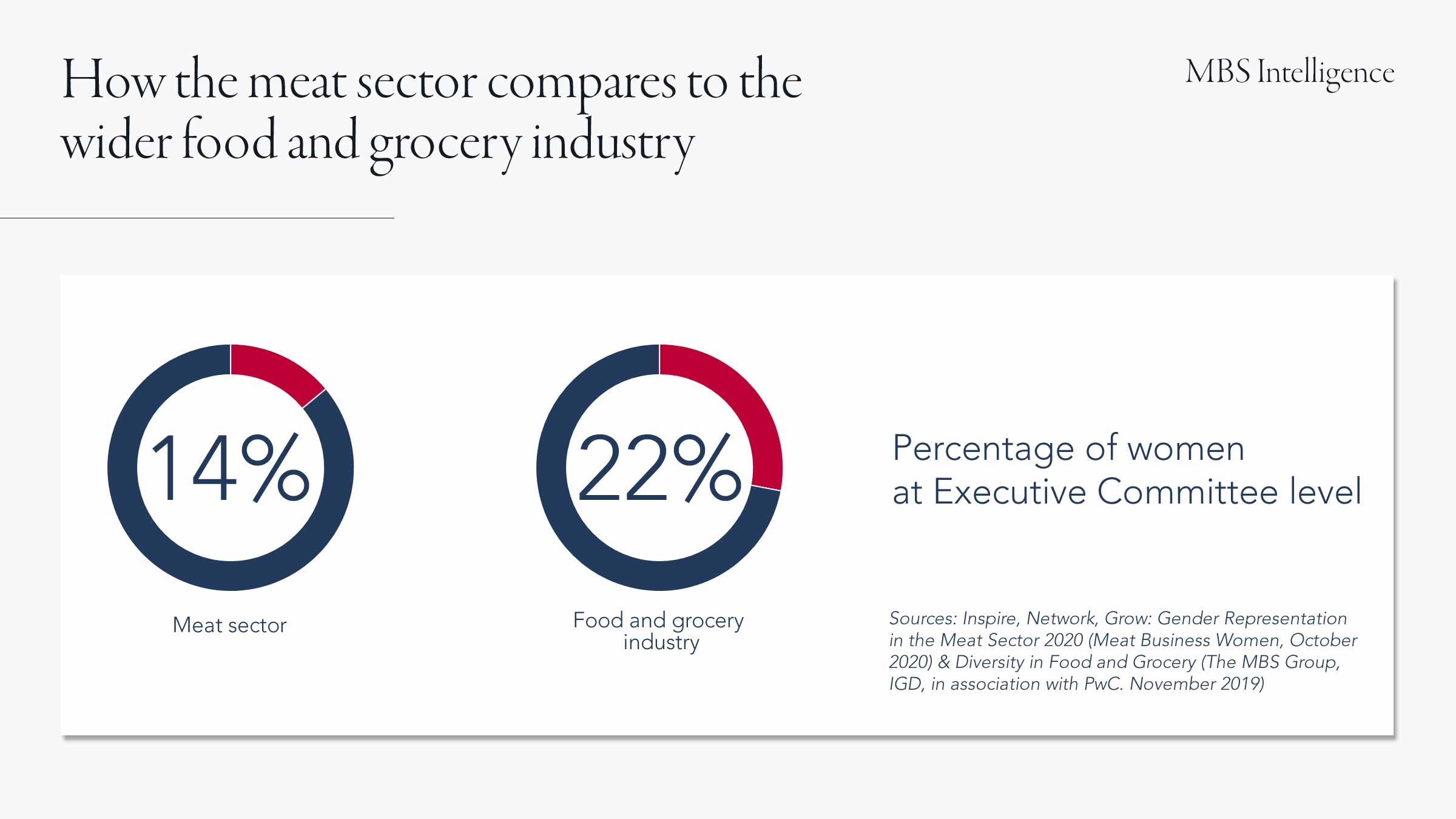This week, I had the privilege of attending the Meat Business Women conference. As with all events in the last few months, I imagined the conference looked a little different from previous years. Nevertheless, it was an inspiring day full of powerful lessons from the likes of Bob Carnell, CEO ABP, Emily Miles, CEO FSA and Jackie Lanham, CPO Hilton Food Group to name but a few.
Much of the conversation was prompted by Meat Business Women’s recent report, looking at female representation in the meat sector. The global meat industry is one of the largest economic sectors in the world, forecasted to be worth $1143bn by 2023, and touching every continent, country and household on the planet. But despite this broad reach and the countless opportunities it presents, the industry has not managed to shrug off its reputation for being a male-dominated space.
It was fascinating to hear more about the report, which looks in detail at female representation in the sector and examines the challenges that the meat industry is facing in achieving diversity. Drawing on survey data from the UK, Ireland, Australia, New Zealand and the USA, the research finds that women make up just 36% of the industry’s total workforce, 14% of executive committee positions and only 5% of chief executive positions.
These figures show that the meat industry has some way to go – and also that it is lagging behind its adjacent industries in the food and grocery space. Previous research from The MBS Group, for example, found that 22% of executive committee positions are occupied by women across the entire food and grocery industry, compared to 14% in the meat sector.
Much of the themes drawn out in the report paint a familiar picture to the rest of the food sector, identifying several ‘broken rungs’ in the career ladder that prevent women from advancing to more senior roles. The research finds that it is easier for women to pursue careers in Marketing, Finance, HR, R&D and Quality fields – but that those disciplines rarely act as stepping stones into the most senior positions.
One point from the report that resonated particularly strongly with me is the lack of formalised mentoring, networking opportunities and senior female role models that exist in the meat sector. Visible role models have long been understood to drive up diversity in businesses, encouraging female and diverse candidates to enter the industry and then rise through the ranks. Without role models, and opportunities for networking and mentoring, the industry runs the risk of remaining a homogenous – and male-dominated – space.
Indeed, it is from this problem that Meat Business Women was born. Laura Ryan, Chair and Founder of Meat Business Women, made it her mission to drive change in the industry after noticing that she was the only woman in many of her senior meetings. “I called contacts to ask if they knew of a networking group, but no one did, so I thought I better set one up myself!”.
What Laura’s achieved since this time has been incredible: Meat Business Women now has over 5,500 members in the UK, Ireland, Australia, New Zealand and the US and is recognised by the United Nations as a contributor to their Sustainable Development Goals, as well as gaining personal sponsorship from HRH The Princess Royal.

Despite her impact on the meat industry, Laura doesn’t have any kind of agricultural background. In fact, she fell into the industry by mistake, taking up a marketing role with a meat wholesaler after graduating from university. “As a kid, I didn’t even like going to the butchers,” she told me, “but when I saw the job opening I just thought: marketing meat… I’ll give that a go!”
Fast forward 20 years and Laura runs her own consultancy, advising meat companies on marketing and business strategy, alongside Meat Business Women and a non-executive role at Livestock Information Limited. “As soon as I joined the industry I loved it,” she told me, “I’m drawn to the pace, the challenges, and the way the industry operates.
“What I learnt from setting up Meat Business Women is that women aren’t great at networking: we’re too busy doing the job, and we’ve got a raft of other stuff to do.”
Laura hopes that this new report will be a wake-up call for the meat industry, providing a chance to reflect on the steps it must take to improve female representation. “In lagging behind other sectors, the meat industry is failing to reap the rewards that come from creating and nurturing a diverse workforce. The message we’re hearing from women is loud and clear,” said Laura, “they love the sector, they’re excited about the opportunities it offers and they want to help it succeed, but certain barriers exist.”
The Meat Business Women conference provided a timely reminder of the power of networking, and the importance of open discussion and role modelling to drive change. It also reminded me that one person can make a massive impact. Laura’s vision and passion has provided an industry with a much-needed forum for a community committed to change – certainly evidenced by the impressive lineup of speakers at this week’s conference. If you are part of the meat industry, in any part of the world, please get in touch. I’d love to hear your experiences…









